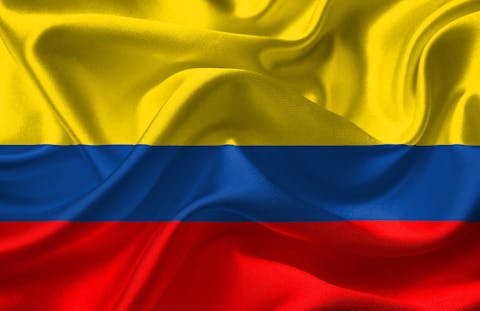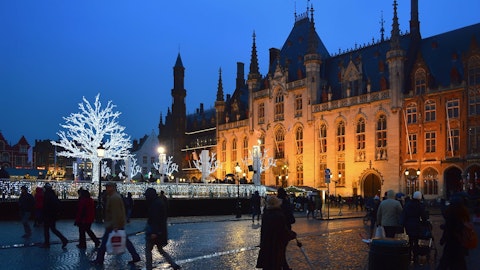In this article, we will take a look at the 20 most black countries in the world outside of Africa.
Globally, when discussing black countries, we immediately associate them with South Africa, Nigeria, Senegal, Ghana, Morocco, and many more countries on the continent of Africa. Black countries pertain to black people in general. In the contemporary period, we can see many black people outside Africa. We can encounter them in North and South America, Europe, some parts of Asia, and the Middle East. Scholars, historians, sociologists, and other specialists utilize the term “African Diaspora,” referring to black people outside of Africa. In addition, the term first appeared in the 1950s in pieces of literature. Truly, it is unfamiliar and unusual to hear or use this term in conversation or writing.
To fully grasp the meaning of African diaspora, diaspora refers to any group of people with a common culture and language subjected to dispersion. The term African Diaspora was commonly used and associated with Africa during the Transatlantic Slave Trade from the 1500s to the 1800s. This diaspora took millions of people from Western and Central Africa to different regions throughout the Americas and the Caribbean. Moreover, the reason for dispersion is the voluntary and involuntary movement of African people and their descendants to different parts of the world.
The difference between voluntary and involuntary dispersion is that involuntary dispersion happened during the colonial era. African people came to Western countries to serve as soldiers, servants, and slaves. The notable term for this period is “transatlantic slave trade,” which happened during the 1500s and 1860s, meaning crossing or extending across the Atlantic Ocean. It was when a web of slave commerce entangled the European and American states. This involuntary action was miserable because Africans left their homeland for good and migrated to the mentioned countries. In some cases, in history, millions of enslaved Africans died before reaching their resettlement.
According to various sources, it was stated that as more European nations came to America to establish colonies, several Africans were forced to settle in the colonized nations or states. The region on the African continent that was most affected was West Africa, which includes Senegal, Gambia, Nigeria, Liberia, Benin, Togo, Ghana, and a few others. The reason why European colonizers captured slaves was for cheap labor. They were transported to build companies, plantations, and houses for their wealthy slave owners. On one hand, European colonizers establish trading posts in Africa, simultaneously growing colonies. They captured slaves through war and raids. At the worst, their African allies were part of it to sell or bring slaves. The men, women, and children were examined at public auctions and sold to the highest bidder. In the records, the largest recorded slave auction was called “The Weeping Time,” which was held in the country of Georgia in Savannah. The auction happened for two days. It was remarkably recorded that a total of 436 men, women, children, and victims were dispersed to other cities, states, and nations. The transatlantic slave trade continued for almost 400 years and resulted in approximately 15 million slaves, consisting of men, women, and children.
Meanwhile, voluntary dispersion has to do with the free will of an individual or community. They moved and migrated on their own accord. Often, voluntary diaspora happens when people form a group of economic migrants and leave their homeland in search of more career opportunities, better living situations, and self-benefits. In this case, this was evident in the modern era. Individuals immigrate for the reasons mentioned. As stated by a few scholars, experts, and specialists, the African Diaspora has been defined narrowly as the Transatlantic slave trade only because it emphasizes significant blackness, colonialism, racism, slavery, and geography. Thus, we named it the “African Diaspora” as the “Black Diaspora.”
Nowadays, diasporas play a significant role in the world, somehow resulting in the progression of countries. Through modernization and globalization, diasporas, or in the modern day, “migration,” are one of the mediums for the integration and unification of cultures and a medium for diversity. However, some scholars and people have had negative opinions about diasporas in the past. But somehow it changes as it plays a role in the economic development of their homeland or their origin country. If you look at it from an optimistic perspective, diasporas also promote trade and foreign direct investment, create businesses, spur entrepreneurship, and transfer new knowledge and skills.
African Diaspora or Black Diaspora caused other nations, especially in the western area of the world, to create the term “ethnicity.” Through the African Diaspora, we can see some races in the West, like African-American people, Afro-Caribbean people, Afro-Latin American people, and Black Canadians.
This very day, ethnicities with African heritage outside of the African continent, or simply referred to as black people around the world, continue to face discrimination and experience stereotypes and biases that were mainly caused by the African Diaspora. Accurately, the historical impact of slavery has to do with the struggles and challenges faced by black people. Unfortunately, it left a remarkable notion and perspective on world society that abuse, exploitation, biases, stereotypes, and discrimination are hindrances to achieving justice and equality for black people around the globe.
Although black people around the world continue to face these struggles and challenges, there is no doubt that in today’s world, they are breaking these discrimination and stereotypes. Notable and renowned personalities or figures are examples that are breaking the ceiling. In the field of history, those who made a huge contribution and impact on their country and the world are Dr. Martin Luther King Jr., James Baldwin, Rosa Parks, and Maya Angelou, who was a Black American poet, singer, memoirist, and civil rights activist. She is one of the most celebrated figures among all Americans. In the field of sports or athletes, LeBron James and Tiger Woods made a name for themselves. Not to forget that among the most celebrated figures in America is none other than Nelson Mandela. He was imprisoned for 27 years for opposing South Africa’s apartheid system and facing harsh conditions. However, these harsh conditions throughout his time were not enough to break his resolve, as he eventually ascended to the position of president and led the abolishment of the apartheid system. Moreover, let’s not forget in the field of entertainment, Whitney Houston and Rihanna, are renowned for their singing. In the world of beauty pageants, few contestants from Europe have a black complexion or have an African heritage; this implies that black is beautiful and accepted by the majority. Not to mention, black models around the globe are flaunting their beauty in runaways, magazines, and commercials. Members of the black population around the world continue to leave a remarkable mark in their respective fields. With that in mind, the purpose of this article is to look at the 20 most black countries in the world outside of Africa. You will be shocked at which country has the most black people outside Africa or which European country or South American country has the highest percentage of black population.

WAYHOME studio/Shutterstock.com
See also: 25 Most Racist States in America Ranked by Hate Crimes
Our Methodology
In formulating the article titled 20 Most Black Countries in the World Outside of Africa, the researchers retrieved data or statistics from various references, which is the primary and only criterion for this article. Hence, each country’s data is meticulously verified and compared to other references for its strength claim. The researchers will also explain the statistics with inferences for a better understanding of all readers. Moreover, to support the data written, the researchers added information to uphold the countries included in the list. The information will encompass or touch on the number of migrants of Africans or other black people, the laws that adhere to and relate to them, culture, tradition, and history. Additionally, the placing of the countries in descending order was based on the lowest percentage to the highest percentage presented by each country of the total black population to its country’s total population. Before anything else, let’s get into the list of the 20 Most Black Countries in the World Outside of Africa.
You can also explore our article on the 25 Richest Criminals of All Time to discover the wealthiest criminals in history and find insights into the Top 10 Most Religious Catholic Countries with the Highest Church Attendance in the World to learn about the most devout Catholic nations globally.
20 Most Black Countries in the World Outside of Africa
20. Germany
Germany is in 20th place among the 20 most black countries in the world outside of Africa, with an estimated population of 83,000,000 people. There were an estimated 1,000,000 Afro-Germans, equivalent to 1.20% as of 2020 statistics. History is also the cause of migrations, but nowadays modern trade plays a role in the migration of black people. German communities such as Hamburg, Frankfurt, Berlin, Munich, and Cologne have an increasing number of Afro-Germans.
19. Italy
Italy is one of the 20 most black countries in the world outside of Africa. Italy is a European country with a long Mediterranean coastline, popular for its Western culture and cuisine, with a total population of 59.11 million consisting of major ethnic groups, the Italians, who account for 95% of the total population. The remaining 5% of the population consists of ethnicities like Albanians, Romanians, Ukrainians, and other Europeans (2.5%); Africans (1.5%); and several other minorities (1%). Africans or black people are 1.50%, equivalent to 886,650. The increase in black people is due to migration.
18. Mexico
The total number of individuals is 126.7 million. It is composed of different ethnicities, and black people or those with African ancestry contribute more than 2.04%, or equivalent to 2,576,213 of Mexico’s population. This implies and is considered in the 20 most black countries in the world outside of Africa. The Africans first came to settle in the country and were served as slaves and laborers from other Spanish territories, such as the Caribbean. The majority of Mexicans with African ancestry live in the Caribbean coastal regions of Oaxaca and Guerrero, among other places in Costa Chica.
17. Spain
Afro-Spaniards are Spanish citizens of direct or indirect African descent, namely black or black of mixed ancestry. Such examples are the following: Afro-Caribbean, African American, or Afro-Latin American descent. Today, the total population of Spain is 47.42 million, with 2.2%, or 940,000, Afro-Spaniards in the total population. In the records of history, it is stated that people of African heritage have inhabited and resided in Spain since the pre-Roman period. However, there was a major increase in Africans in the country during the Islamic period. With this, a considerable number of Africans also came by force to Spain and served as slaves. Therefore, it is included in the list of the 20 most black countries in the world outside of Africa.
16. Venezuela
Venezuela is a country on the northern coast of South America with notable, diverse natural attractions along its Caribbean coast. Venezuela’s population is 30,518,26, consisting of Mestizo, Moreno, and Morena, white people, black people, and Afro-descents. 3.1% of the total population, or 946,066 combination of Afro-descent and Black people. It has been reported that the number of minorities is likely far higher than these estimates. Likewise, other sources suggest that nearly a quarter of the Venezuelan population has African ancestry. Like other countries, Africans were forced to come to Venezuela in the 18th century as workers and slaves to work mostly on cocoa plantations. The largest population of Afro-Venezuelans is in the Barlovento region of Miranda. Then, it was considered one of the 20 most black countries in the world outside of Africa.
15. Ecuador
A country located at the equator on South America’s west coast. Renowned for its diverse landscape encompassing various natural resources and wildlife, it is famously known for its Amazon jungle, Andean highlands, and wildlife-rich. This country has five major ethnic groups, which are: Afro-Ecuadorian, Indigenous, Blanco Mestizos, and Montubio. Ecuador’s population is 17. 8 million, consisting of 4.3%, or 765,400, of the total black population. Furthermore, it was stated in various references that most of the black people resided on the coast of Esmeraldas, which is in the northwestern part of Ecuador. Black people from Ecuador are descendants of enslaved Africans during the 16th century. This includes Ecuador in the list of the 20 most black countries in the world outside of Africa.
14. United Kingdom
The United Kingdom is one of the 20 most black countries in the world outside of Africa. References and sources stated that the Black British make up more than 4.2%, or 2.5 million, of the Black, Black British, Caribbean, or Africans in the total population of 67.43 million. The first blacks ended up in the United Kingdom as enslaved people in the sixteenth century, during the Transatlantic Slave Trades in the 16th century, which led to the growing presence of black people in the northern, eastern, and southern areas of the United Kingdom. Today, black British citizens are the largest ethnic minority in the country and reside in London’s East End, Liverpool, Bristol, and Cardiff in the UK’s port cities.
13. Canada
Canada has a total population of 36,991,981 individuals, making up the black population, or Black Canadians, for 4.3% of Canada’s total population, equivalent to 1.5 million. Canada has one of the highest black populations outside Africa due to its massive location, and historians and scholars claim that the first blacks arrived in the country through underground railroads built by abolitionists and their allies to help enslaved Africans escape slavery. However, in modern times, the majority of Africans came to Canada more recently as immigrants looking for a better life. Thus, it is included in the list of the 20 most black countries in the world outside of Africa.
12. Dominican Republic
The Caribbean state-nation considered one of the 20 most black countries in the world outside of Africa that shares the island of Hispaniola with Haiti to the west is the Dominican Republic. This country is popular and known for its beaches, resorts, and golf. Along with this, the terrain comprises rainforest, savannah, and highlands. Dominicans of predominant or full Black African ancestry. They are a minority in the country, representing 7.8%, or equivalent to 889,600. However, many citizens of African ancestry do not identify themselves as black because black people are experiencing discrimination due to this notion in history. A recent study suggests that black Dominicans face difficulties obtaining official documents and accessing education.
11. Cuba
A Caribbean island nation with a population of 11 million and diverse ethnicities, with 64% of the total population identified as white, 27% are mixed races, and lastly, 9% of the total population being Afro-Cuban, equivalent to 1.1 million. According to various sources, the Afro-Cubans reside in the eastern part of Cuba and Havana. Moreover, it was stated that the first slaves were taken to the mentioned country. They were forced to work in mining. Therefore, it was included in the list of the 20 most black countries in the world outside of Africa.
10. Trinidad and Tobago
The twin island located in the southernmost part of the Caribbean is the Republic of Trinidad and Tobago, just off the coast of north-eastern Venezuela and south of Grenada in the Lesser Antilles. With a total population of 1,221,047 as of July 2021, this country has the attributes of being multicultural, comprising 35.4% of East Indian descent, 34.2% of African descent, and 22.8% of mixed people around the globe. African slaves were forcibly brought to the island as laborers on sugar and cocoa plantations during the 17th century, making up a total of 417,598.074 of the black population. Thus, included in the list of the 20 Most Black Countries in the World Outside of Africa.
9. Jamaica
On the list of the 20 most black countries in the world outside of Africa is Jamaica, a Caribbean island nation that has a lush topography of mountains, rainforests, and reef-lined beaches. Jamaicans have a total population of 2,825,544 people of African descent, representing 76.3%, or 2,155,890.072, of the population, followed by 15.1% Afro-European, 3.4% East Indian and Afro-East Indian, 3.2% Caucasian, 1.2% Chinese, and 0.8% other. According to the data, it represents that it has the largest black population outside Africa, and it has one of the highest percentages of blacks. More than 90% of Jamaicans have black ancestry. They were the first Africans who came to the country as slaves, mostly from the region in the west of modern-day Ghana, Nigeria, and some parts of Central Africa.
8. Peru
Like most countries in this list of the 20 most black countries in the world outside, the first Africans who were victims of the transatlantic slave trade arrived in Peru in the 16th century. They were slaves in European colonies. Nowadays, it is estimated that black Peruvians make up anywhere between 3% and 9% of its total population, which is 33.72 million. Peruvians identified as “black” were identified as having unmixed African descent, while together with the Mulatos and Zambos, they would make up a total of 9% of the Peruvian population of 2,850,000. Afro-Peruvian people, together with black people, live in the southern coastal regions, particularly the cities of Ica and Nazca, and they are an integral and significant part of Peru’s cultural heritage.
7. Saudi Arabia
It might be surprising to see Saudi Arabia on the list of the 20 most black countries in the world outside Africa. According to data, an estimated number of Afro-Arabians make up around 10% of Saudi Arabia’s population, which is 35.95 million. The country’s African origins date back to the 6th and 7th centuries, when Africans came to Saudi Arabia as Muslim migrants and as part of the Arab slave trade.
6. Yemen
An Arabic country with an overwhelming population of 5% of the Afro-Arab population is Yemen. The majority of the Africans came to the country as part of the Arabic slave trade. This country is located in Western Asia, which occupies the southwestern and southern ends of the Arabian Peninsula and shares maritime borders with African nations. The geographical location contributes to the increase in black people. Thus, this explains why the country has a high black population and is considered among the 20 most black countries in the world outside of Africa.
5. Colombia
As part of colonies in the West, African slaves came to this country in the early 16th century through Cartagena, which was Columbia’s largest slave port. In recent times, Afro-Colombians have been on the Northwest Caribbean coast and the Pacific coast of the country. Colombia has one of the largest Afro-descendant populations in Latin America. According to surveys, the results estimate that Afro-Colombians constitute 10% of the total population, which translates to 4.67 million Afro-descendants. Thus, it is considered one of the 20 most black countries in the world outside of Africa.

Pixabay/Public Domain
4. France
If you ask yourself which European country has the highest black population and is considered one of the 20 most black countries in the world outside Africa, it is France. Black people account for approximately 5% of the country’s total population. Blacks living in the country came through voluntary migration for a better life situation.






